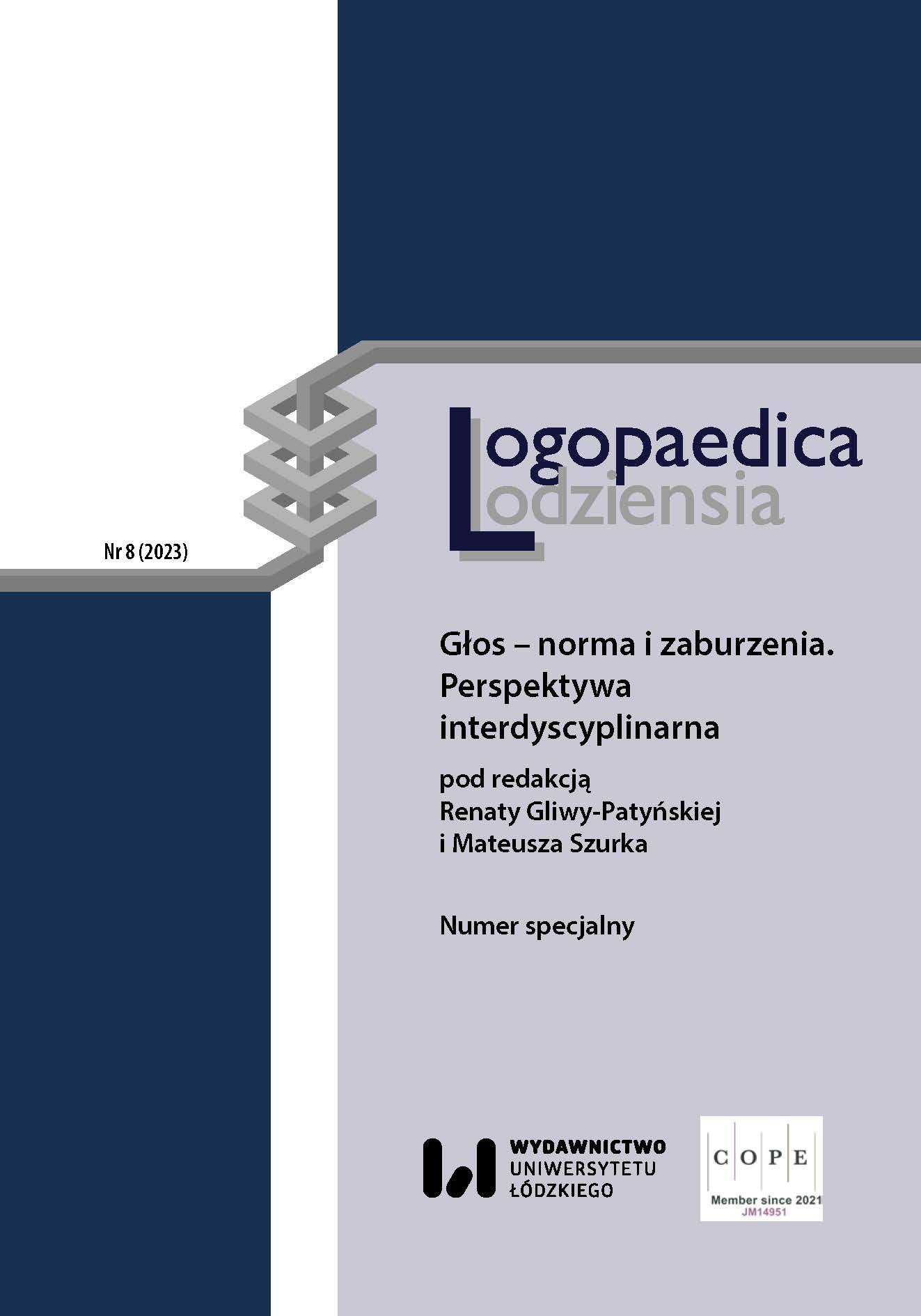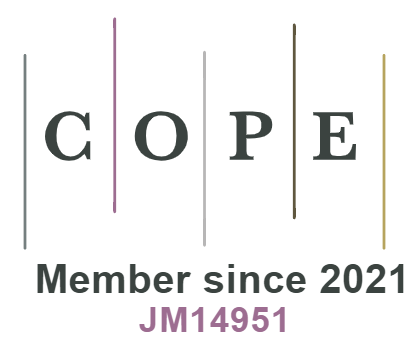Voice in Classical and Contemporary Commercial Music. Applications of the Estill Voice Training Model in the Practice of a Voice Trainer: A Case Study
DOI:
https://doi.org/10.18778/2544-7238.08.16Keywords:
voice, Estill Voice Training, vocal training, classical singing, contemporary commercial music, vocal pedagogyAbstract
Classical and contemporary commercial music singers have a different model of the sound of their voices. Significant progress has been made in the field of voice science in recent decades. Anatomy, physiology, acoustics and awareness of muscle work helps in planning training and influences sound strategy and vocal style. The article characterises the Estill Voice Training model and uses the original method of using Estill Voice Training in working with a classical singer who is intended to produce a sound characteristic of contemporary commercial music.
Downloads
References
Aura M., Geneid A., Bjørkøy K., Rantanen M., Laukkanen A., 2019, The Nasal Musculature as a Control Panel for Singing – Why Classical Singers Use a Special Facial Expression?, „Journal of Voice”, Vol. 33, s. 510–515.
Google Scholar
DOI: https://doi.org/10.1016/j.jvoice.2017.12.016
Davids J., LaTour S., 2021, Vocal Technique: A Guide to Classical and Contemporary Styles for Conductors, Teachers and Singers, Long Grove: Waveland Press Inc.
Google Scholar
Estill J., McDonald Klimek M., Obert K., Steinhauer K., 2005a, Estill voice training level one: figures for voice control, Pittsburgh: Estill Voice Training Systems International.
Google Scholar
Estill J., McDonald Klimek M., Obert K., Steinhauer K., 2005b, Estill voice training level two: figures combination for six voice qualities, Pittsburgh: Estill Voice Training Systems International.
Google Scholar
Fantini M., Fussi F., Crosetti E., Succo G., 2016, Estill Voice Training and voice quality control in contemporary commercial singing: an exploratory study, „Logopedics Phoniatrics Vocology”, Vol. 42(4), s. 146–152.
Google Scholar
DOI: https://doi.org/10.1080/14015439.2016.1237543
Kayes G., 2004, Singing and the actor, London: Bloomsbury Publishing Plc.
Google Scholar
LoVetri J., 2008, Contemporary Commercial Music, „Journal of Voice”, Vol. 22, s. 260–262.
Google Scholar
DOI: https://doi.org/10.1016/j.jvoice.2006.11.002
Sundberg J., 2001, Level and center frequency of the singer’s formant, „Journal of Voice”, Vol. 15, s. 176–186.
Google Scholar
DOI: https://doi.org/10.1016/S0892-1997(01)00019-4
Downloads
Published
How to Cite
Issue
Section
License

This work is licensed under a Creative Commons Attribution-NonCommercial-NoDerivatives 4.0 International License.












